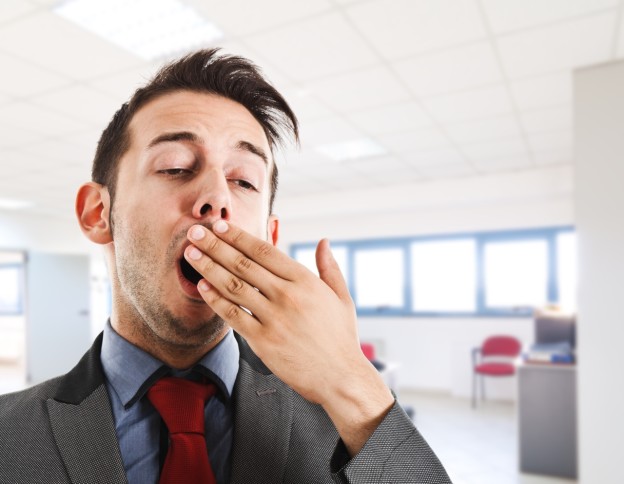“Sometimes all I want to do is sleep”, the same situation is faced by many individuals. If you are one of them, you should start taking it seriously and try solving it. The cause of excessive sleepiness can be multiple and may lead to inconvenience in your personal and social life. The most common cause of excessive sleepiness is depression, which also causes lack of motivation in normal life activities. Read on to learn about how to turn this situation around and be more energetic and interested in your daily routine.
All I Want to Do Is Sleep! What Are the Causes?

A: Hypersomnia
It is a medical condition that is marked by extreme sleepiness. Hypersomnia is most commonly caused by inadequate sleep due to work shifts, family and social life, studies etc. Some other causes could be medication reaction or illness.
People report sleeping for 12 hours or more in severe hypersomnia and still feel like taking naps in between work during daytime. In such cases, napping and sleeping wouldn’t actually help much and you may still feel drowsiness. A hypersomnia patient might have a disturbed sleep without knowing.
Daytime sleepiness can be caused by multiple factors including:
- Medication
People who take alcohol, tranquillizers, caffeine and sleeping pills sometimes complain that “all I want to do is sleep”during the day.
- Insufficient Sleep
Working long hours at the office can take a toll on your health and may lead to excessive daytime sleepiness. If you are a teenager and you like staying uplate on weekends, you may also feel drowsiness during the week.
- Shiftwork
If you work nightshifts, you may feel sleepy throughout the day and face sleeping problems due to disturbances in the circadian rhythm. The problem could also be caused by change of synchronization from the body's biological clock.
- Environmental Factors
Your sleepcan be disturbed by many environmental factors including sleeping with someone who snores, baby waking up at midnight, room temperature or an uncomfortable sleeping place, etc.
- Time Zone Changes
Your biological body clock which is responsible for regulating the sleep cycle and reacts to environmental changes can be affected by jet lag.
- Mental Condition
Extreme tensed condition and anxiety could force you to wake up at night and make you feel sleepy during the day.
- Medical Condition
Some medical conditions can also cause extra desire to sleep, including hypothyroidism, esophageal reflux, chronic conditions and asthma.
B: Depression
If your mind says "all I want to do is sleep" during the day, depression is likely to be the culprit. Phycologists have discovered that disturbance of normal sleep cycle is a major indicator of depression. Some patients suffering from depression feel sleepy during the day, while others find themselves having trouble to fall asleep at night. Individual cases may vary, but daytime sleepiness is common.
C: Sleep Disorders
During daytime, if your mind starts shouting "all I want to do is sleep", then you might have one of the following sleep disorders:
- Insomnia
If you have insomnia, you may not feel like sleeping or unable to stay asleep. It also makes people tired and not feeling refreshed after waking up. You will need a complete evaluation by your doctor, because insomnia can be a sleep disorder or a symptom of another condition.
- Sleep Apnea
With sleep apnea, you would snore, gasp and choke while sleeping and wake up suddenly. You may also stop breathing, which results in decreased oxygen supply to the brain.
- Restless Legs Syndrome (RLS)
In this situation, you would feel the urge to move your legs when lying down. You may also feel sensations in your legs like crawling, burning and creeping. Another variant of RLS is referred to as Periodic Limb Movement Disorder in which your leg-muscles jerk or twitch repeatedly,causing restless sleep.
- Narcolepsy
In narcolepsy, you could fall asleep anytime during the day, even during work, driving oroperating heavy machinery. You may also have weakness in muscles leading to falling accidents. People with narcolepsy also suffer sleep paralysis, emotional excitement, dramatic dreams and hallucinations.
D: Pregnancy Symptoms
Women start to feel like taking naps during their first trimester, even those who never took them may need some extra sleep. This is the result of the extra progesterone that makes you feel exhausted.
Early pregnancy symptoms include sluggishness, tiredness and excessive sleeping. Pregnant women would want to lie on the sofa all day or never leave their beds. This is due to the pregnancy hormones that consume lots of energy for building the placenta--the base for supporting your baby's life.
All I Want to Do Is Sleep! What Can I Do About It?
In order to improve your sleep patterns, you can try following these suggestions:
- Keep your routine relaxed to avoid anxiety at night.
- Stop using cigarettes, and reduce the intake of caffeine and alcoholespecially at bedtime.
- In order to prevent the risk of nutrition deficiencies, make sure you are consuming a well-balanced diet.
- Maintain your BMI and perform exercise regularly.
- To reduce disturbance during sleep, consider changing your sleeping environment such as move the television outside your bedroom.
- Keep the temperature of your bedroom comfortable enough to induce and maintainsleep.
- Set a fixedgo-to-bed time so that your body gets used to it.
- Don't lie on your bed all the time, but just when you feel sleepy.
- For staying alert during the day, take small naps to boost up. Napping can sometimes affect night-time sleep so it's generally not recommended. However, small naps can be helpful when you need concentration to work or to perform normal life activities.
